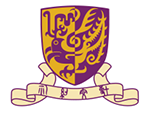柯亞教授及容永豪教授發現促進關聯記憶形成的神經結構
A research study led by Prof. Ke Ya, Associate Professor of the School of Biomedical Sciences (SBS) and Prof. Yung Wing-ho, Professor of SBS, CUHK has discovered a new neural architecture in the brain of the fruit fly that facilitates the formation of associative memory. The findings provide a good foundation for understanding memory problems caused by neurodegenerative diseases and help develop effective therapeutic strategies for brain disorders. The results have been published in Current Biology, a world-renowned scientific journal, which can be viewed HERE.
Prof. Ke Ya stated, “Associative learning is the foundation of more complex forms of learning. This circuit architecture, or its working principle, may be preserved and utilised in the brains of higher animals. Therefore, our study has provided a deeper understanding of memory formation in the animal brain. Our results may also inspire researchers in the field of artificial intelligence to design new artificial neural networks that can learn faster and better.”
Prof. Yung Wing-ho said, “Probing what goes wrong with the memory of brain disorder patients relies on an appreciation of the normal process of memory formation. Our discovery of the regulatory mechanism in memory formation may in the future be important for the development of effective therapeutic strategies for Alzheimer’s disease and other brain disorders.”
The study is led by Prof. Ke and Prof. Yung, with contributions by Mr. Qiao Jing-da, Mr. Yang Sheng-xi, postgraduate students of SBS; and Dr. Geng Hong-yan, postdoctoral fellow of SBS. The related coverage by the Communications and Public Relations Office, CUHK can be viewed HERE, whereas the one by CU Medicine is viewable HERE.

Prof. Ke Ya (right) and Prof. Yung Wing-ho (left)
香港中文大學生物醫學學院副教授柯亞教授及教授容永豪教授領導的研究在果蠅的腦中,發現一種可以促進關聯記憶形成的嶄新神經結構。此發現將有助醫學界更深入了解腦部疾病如何損害記憶,對未來研發腦部疾病的治療具重要影響。其研究結果已於著名國際進化生物學期刊《當代生物學》發表,論文全文可按此處參閱。
柯亞教授表示:「關聯學習是更複雜學習形式的基礎。這個神經結構或其運作原理很大可能會在高等動物的大腦中保存和被運用。因此,我們的研究結果有助更深入了解動物大腦如何形成記憶,亦有助啟發人工智能領域的研究人員設計學習能力更快及更佳的人工神經網絡。」
容永豪教授指出:「通過了解記憶在正常情況下的形成過程,我們可以探究腦部疾病患者的記憶為何出現問題。這次研究發現記憶形成過程的調節機制,對未來研發阿茲海默症等腦部疾病的有效治療策略具重要作用。」
是次研究由柯亞教授及容永豪教授領導,研究團隊成員包括學院研究生喬景達先生及楊聖璽先生,以及博士後研究員耿紅岩博士。中大傳訊及公共關係處的有關報導請按此處瀏覽;而中大醫學院的報導可按此瀏覽。

柯亞教授 (右)和容永豪教授(左)
香港中文大学生物医学学院副教授柯亚教授及教授容永豪教授领导的研究在果蝇的脑中,发现一种可以促进关联记忆形成的崭新神经结构。此发现将有助医学界更深入了解脑部疾病如何损害记忆,对未来研发脑部疾病的治疗具重要影响。其研究结果已于著名国际进化生物学期刊《当代生物学》发表,论文全文可按此处参阅。
柯亚教授表示:「关联学习是更复杂学习形式的基础。这个神经结构或其运作原理很大可能会在高等动物的大脑中保存和被运用。因此,我们的研究结果有助更深入了解动物大脑如何形成记忆,亦有助启发人工智能领域的研究人员设计学习能力更快及更佳的人工神经网络。」
容永豪教授指出:「通过了解记忆在正常情况下的形成过程,我们可以探究脑部疾病患者的记忆为何出现问题。这次研究发现记忆形成过程的调节机制,对未来研发阿兹海默症等脑部疾病的有效治疗策略具重要作用。」
是次研究由柯亚教授及容永豪教授领导,研究团队成员包括学院研究生乔景达先生及杨圣玺先生,以及博士后研究员耿红岩博士。中大传讯及公共关系处的有关报导请按此处浏览;而中大医学院的报导可按此浏览。

柯亚教授 (右)和容永豪教授(左)



